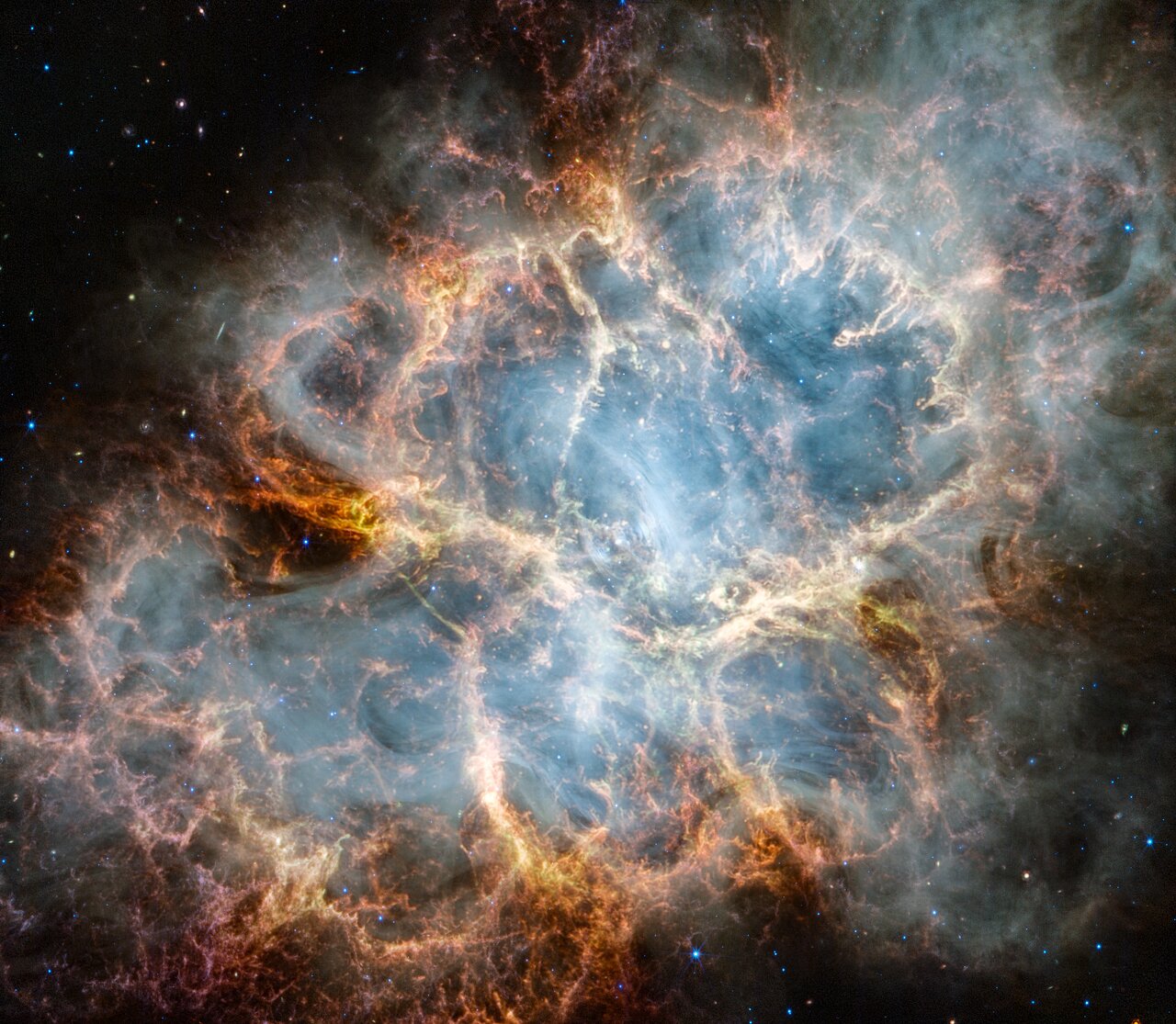About the Object
| Name: | Crab Nebula, M1 | |
|---|---|---|
| Distance: |
6500 light years | |
| Constellation: | Taurus | |
| Category: | MIRI Nebulae NIRCam | |
Coordinates
| Position (RA): | 5 34 32.57 | |
|---|---|---|
| Position (Dec): | 22° 0' 59.98" | |
| Band | Wavelength | Telescope |
|---|---|---|
| Infrared | 1.62 μm | James Webb Space Telescope NIRCam |
| Infrared | 4.8 μm | James Webb Space Telescope NIRCam |
| Infrared | 5.6 μm | James Webb Space Telescope MIRI |
|
Infrared
PAH | 11 μm | James Webb Space Telescope MIRI |
|
Infrared
Silicate | 18 μm | James Webb Space Telescope MIRI |
| Infrared | 21 μm | James Webb Space Telescope MIRI |
Webb’s new view of the Crab Nebula
The NASA/ESA/CSA James Webb Space Telescope has gazed at the Crab Nebula in the search for answers about the supernova remnant’s origins. Webb’s NIRCam (Near-Infrared Camera) and MIRI (Mid-Infrared Instrument) have revealed new details in infrared light.
Similar to the Hubble optical wavelength image released in 2005, with Webb the remnant appears to consist of a crisp, cage-like structure of fluffy red-orange filaments of gas that trace doubly ionised sulphur (sulphur III). Within the remnant’s interior, yellow-white and green fluffy ridges form large-scale loop-like structures, which represent areas where dust particles reside.
The area within is composed of translucent, milky material. This material is emitting synchrotron radiation, which is emitted across the electromagnetic spectrum but becomes particularly vibrant thanks to Webb’s sensitivity and spatial resolution. It is generated by particles accelerated to extremely high speeds as they wind around magnetic field lines. The synchrotron radiation can be traced throughout the majority of the Crab Nebula’s interior.
Locate the wisps that follow a ripple-like pattern in the middle. In the centre of this ring-like structure is a bright white dot: a rapidly rotating neutron star. Further out from the core, follow the thin white ribbons of the radiation. The curvy wisps are closely grouped together, following different directions that mimic the structure of the pulsar’s magnetic field. Note how certain gas filaments are bluer in colour. These areas contain singly ionised iron (iron II).
[Image description: An oval nebula with a complex structure against a black background. On the oval’s exterior lie curtains of glowing red and orange fluffy material. Interior to this outer shell lie large-scale loops of mottled filaments of yellow-white and green, studded with clumps and knots. Translucent thin ribbons of smoky white lie within the remnant’s interior, brightest toward its centre.]
Credit:NASA, ESA, CSA, STScI, T. Temim (Princeton University)
About the Image
| Id: | weic2326e | |
|---|---|---|
| Type: | Observation | |
| Release date: | 30 October 2023, 15:00 | |
| Size: | 10509 x 9151 px | |


